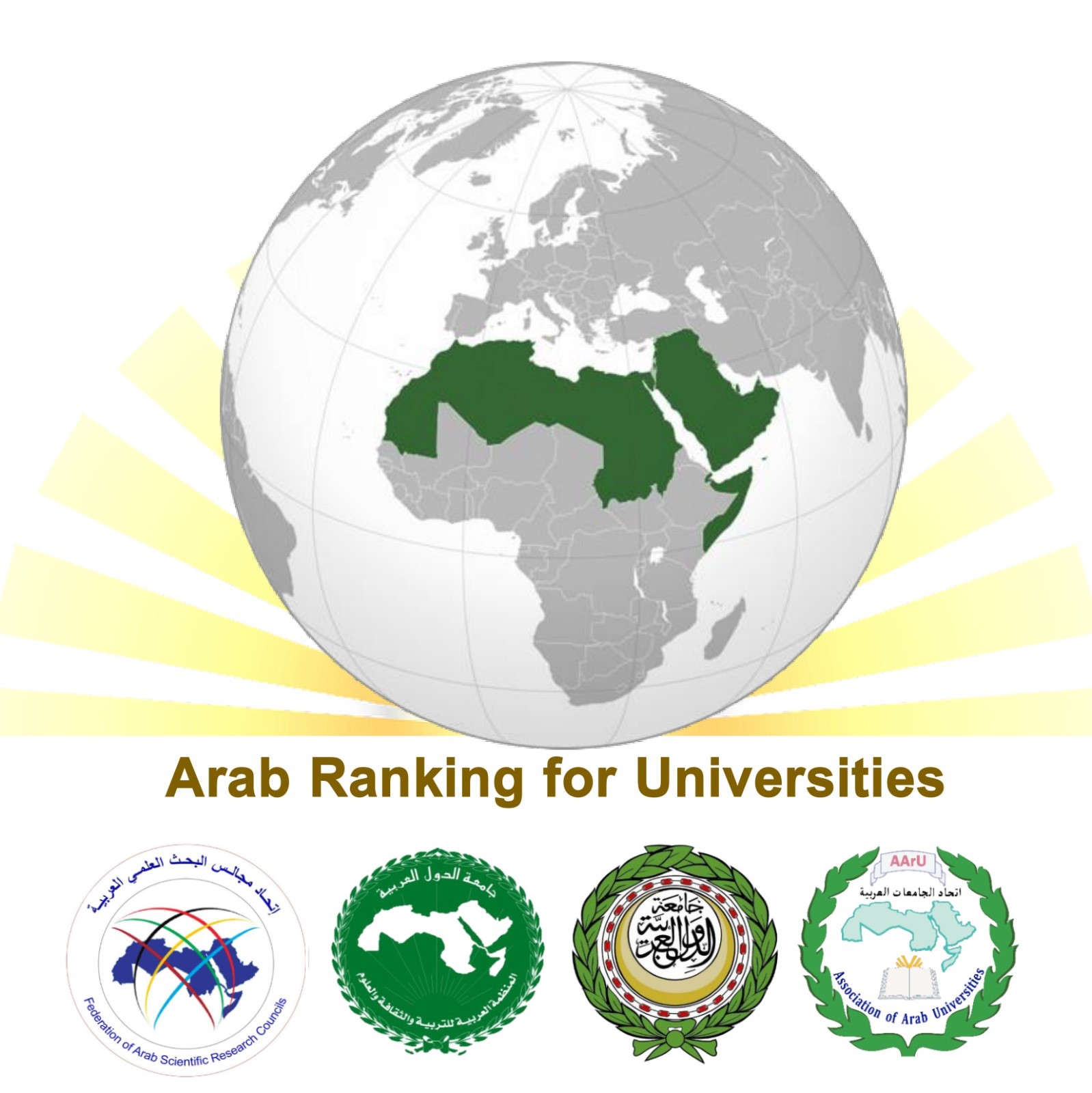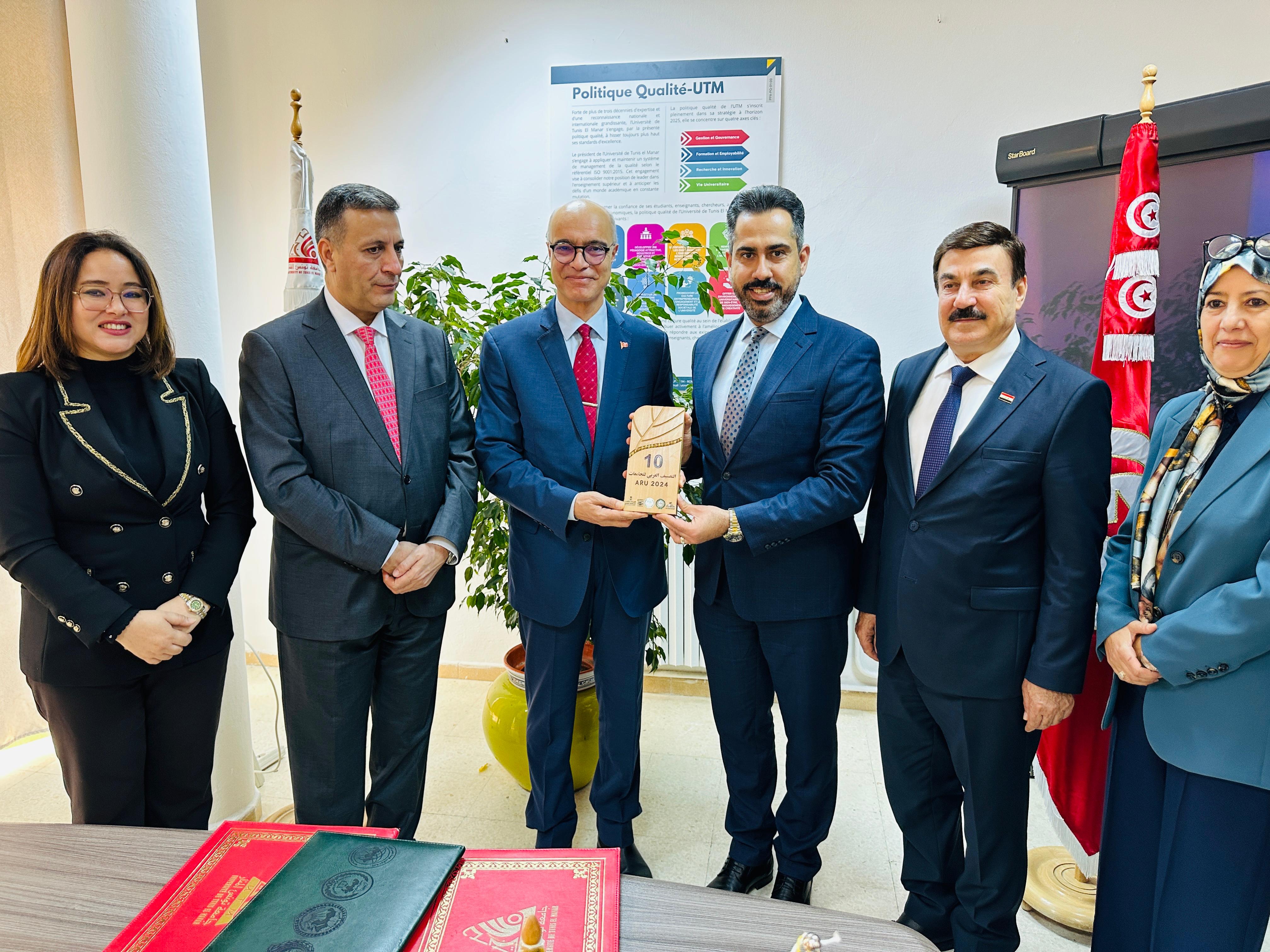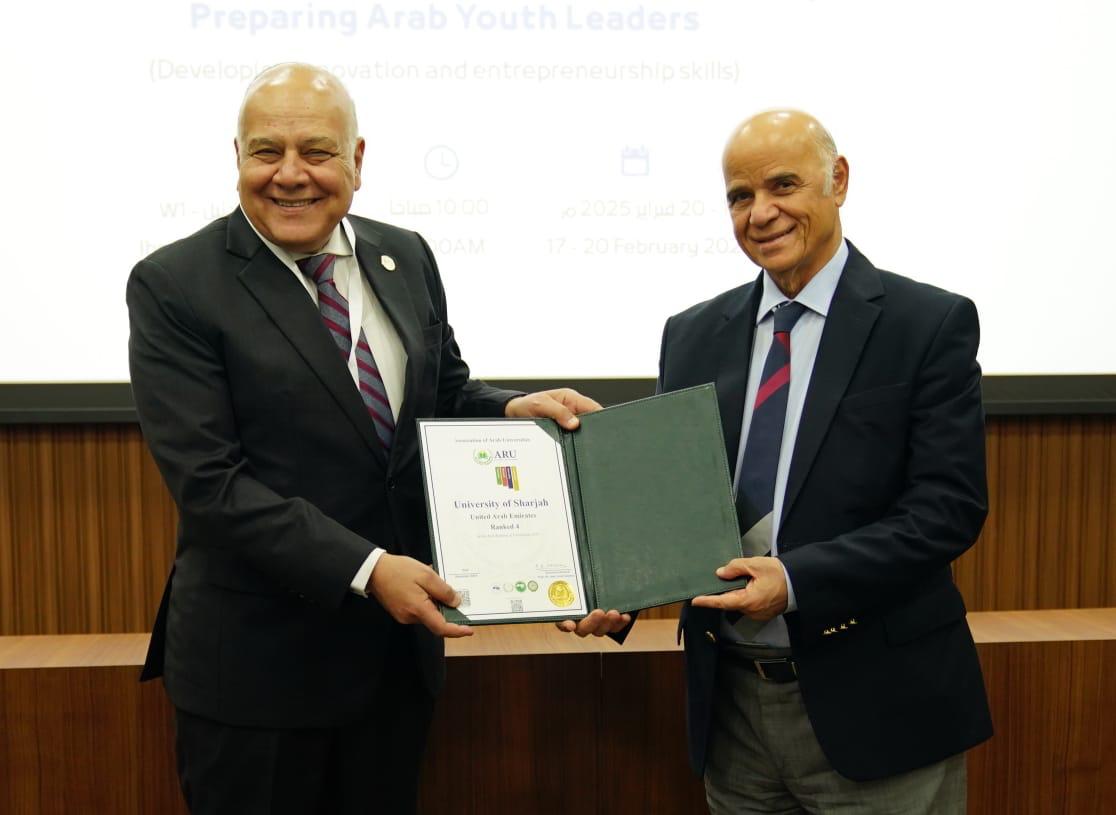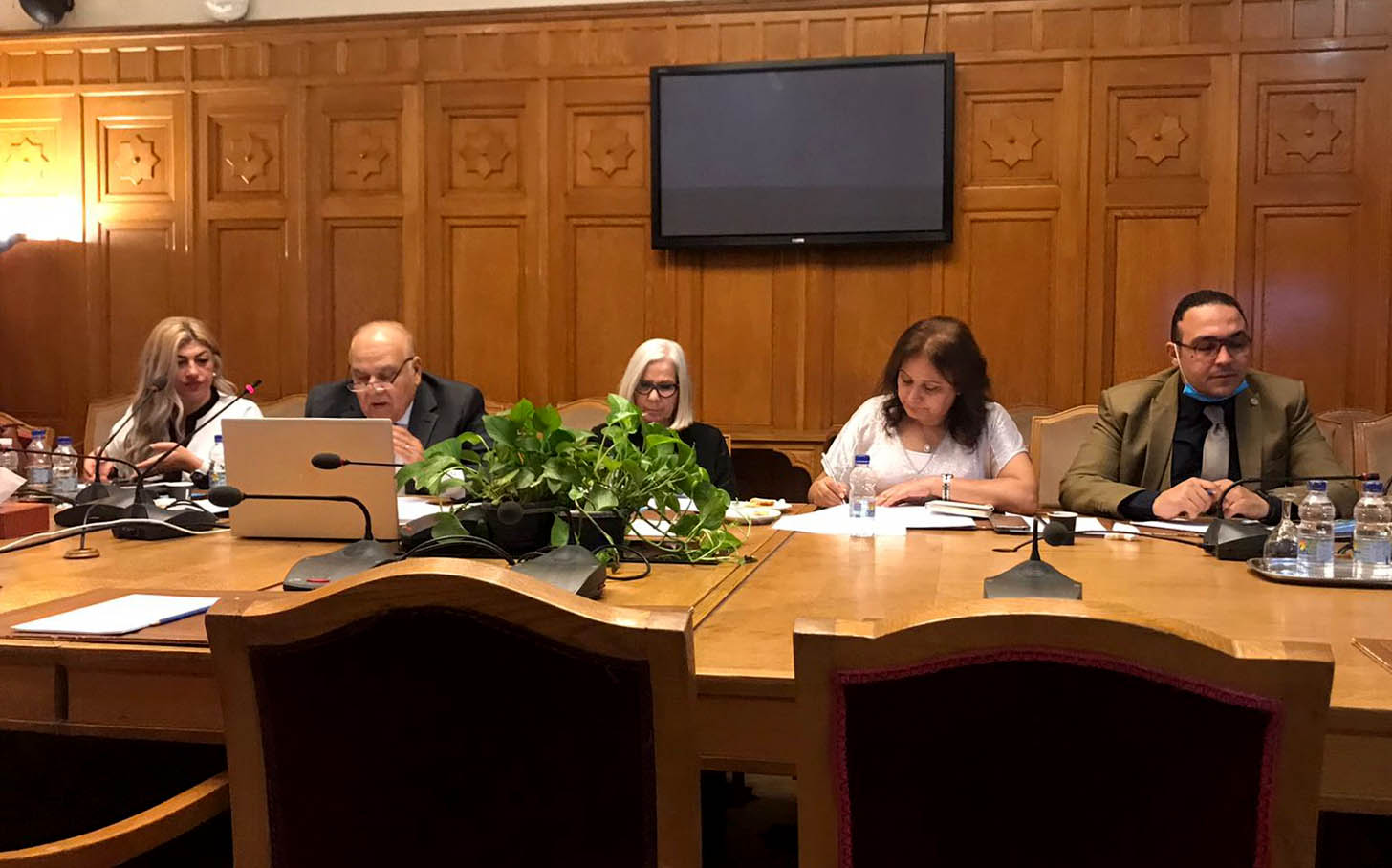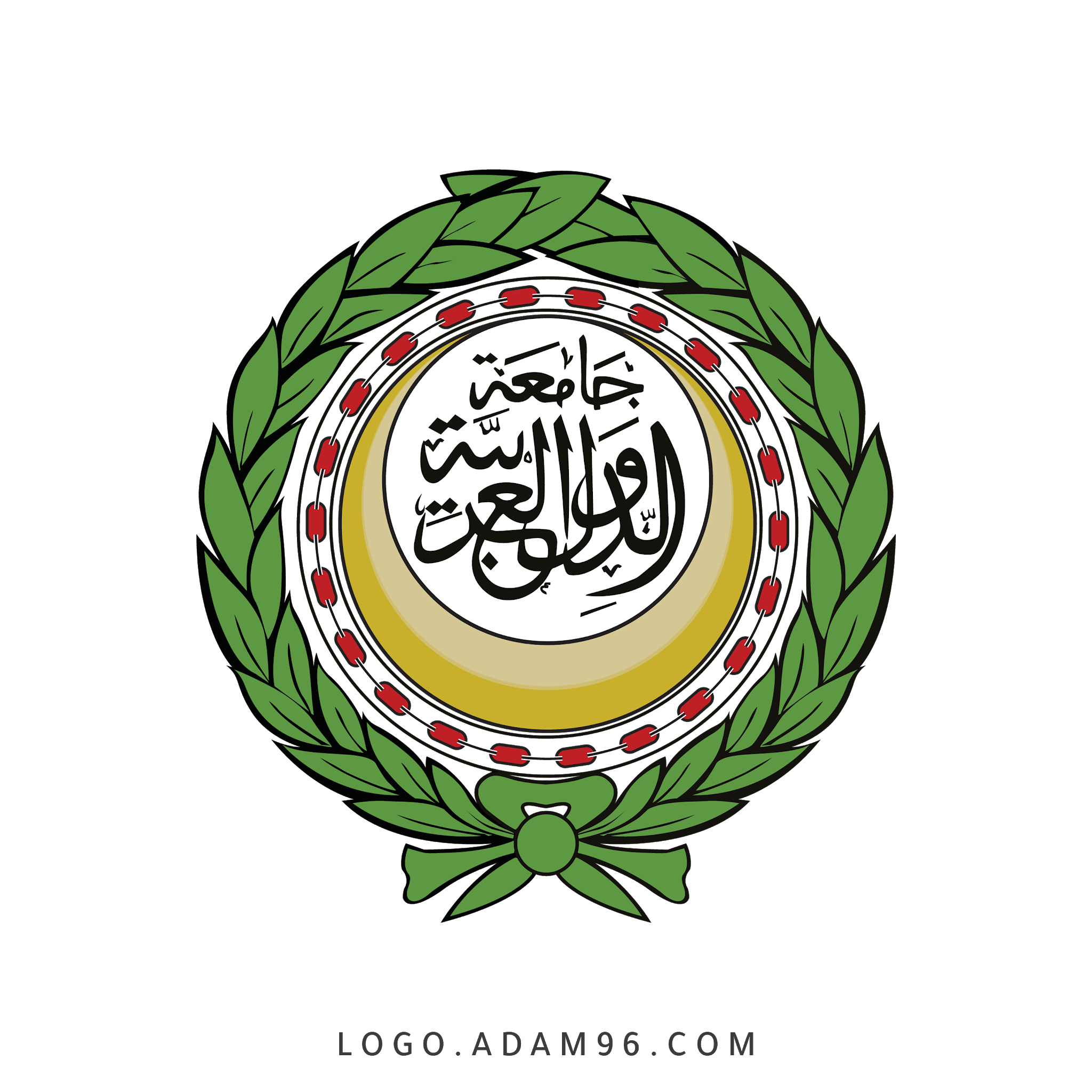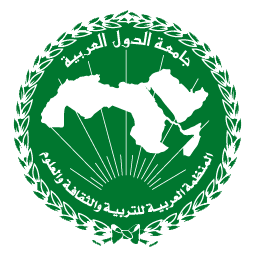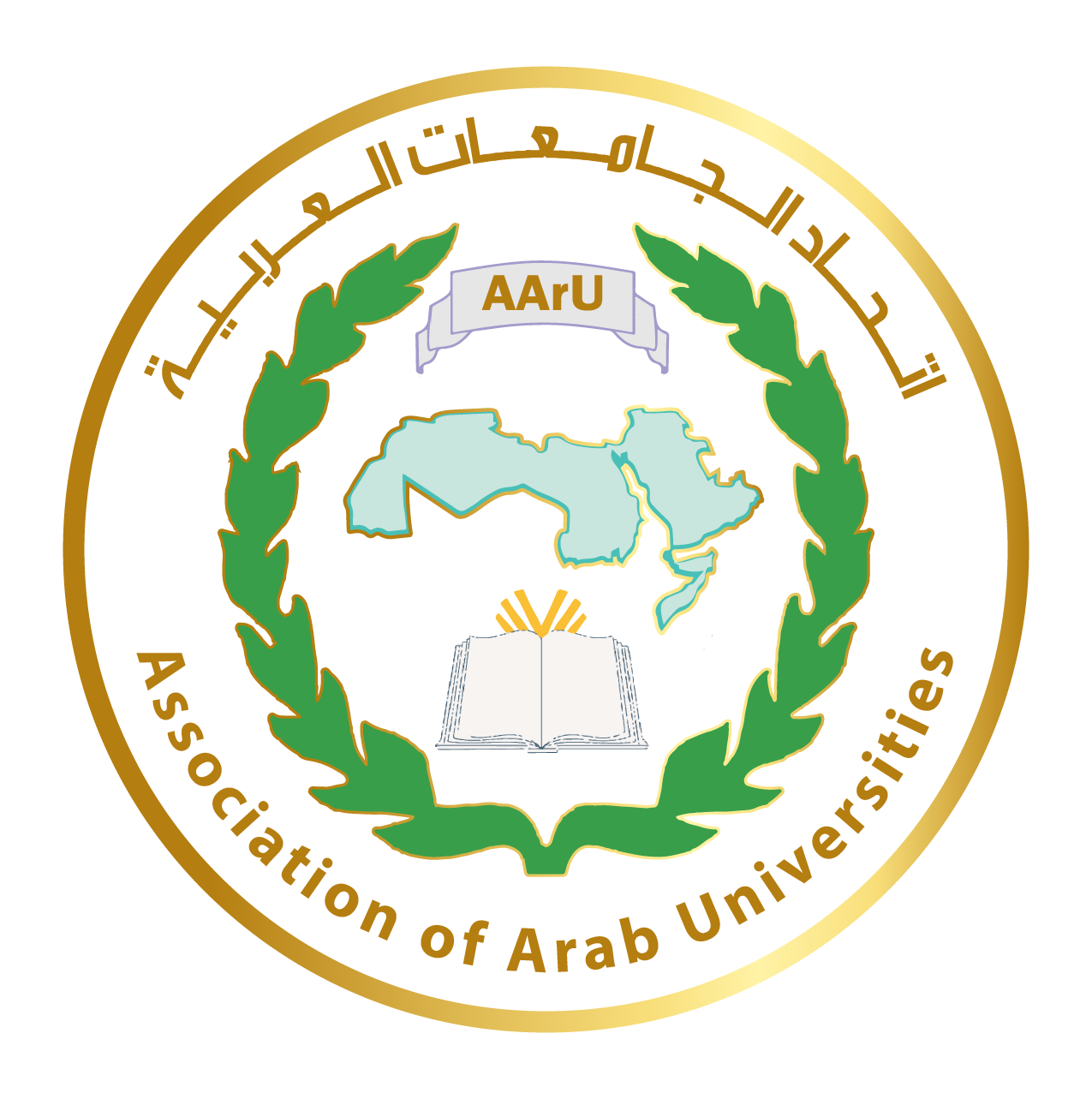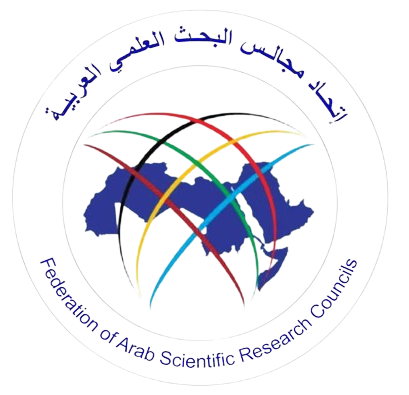
Amr Ezzat Salama: Rankings have become a reference point for governments to assess the effectiveness of universities
Dr. Amr Ezzat Salama, Secretary-General of the Association of Arab Universities, said that Cairo's hosting of the ceremony honoring and awarding certificates to Arab universities included in the first edition of the Arab University Rankings 2023 is a unique occasion that brings us together to honor and award certificates to the top universities in the first Arab University Rankings. It represents recognition of the efforts and achievements of universities that have distinguished themselves with their excellence and high standing in the academic arena.
Salama added, during his speech today at the ceremony honoring and awarding certificates to Arab universities included in the first edition of the Arab University Rankings 2023, that the rankings have become a reference point for governments to evaluate the effectiveness of universities, for university policymakers to formulate university development plans, for companies to select partner institutions, and for students and parents to select their universities. He emphasized that the inclusion of universities in the global rankings has become one of the conditions for approval by the ministries of education in some countries to establish partnerships or branches of foreign universities.
There is an urgent need for an Arab university classification that suits Arab privacy.
Salama said that there are more than 30,000 universities and higher institutes in the world, in 238 countries, and several thousand of them are evaluated and classified annually to select the best ones through approximately 20 international university rankings. Arab universities cite rankings from China, Europe, and America. He explained that this has made the urgent need for an Arab university ranking that suits Arab specificities and is supported by an Arab index to evaluate the performance of higher education institutions and reclassify them to achieve Arab consensus, according to global standards where competition and labor market pressures are intense.
The Secretary-General of the Association of Arab Universities also stressed that within the framework of the shared interest between the League of Arab States, the Arab League Educational, Cultural and Scientific Organization, the Federation of Arab Scientific Research Councils, and the Association of Arab Universities to improve the outcomes of higher education and scientific research to enable them to lead Arab development to achieve sustainable development goals, the Arab University Classification Project was approved. Accordingly, the Arab Council for University Classification was established to manage the project. He pointed out that care was taken to enable Arab universities to enhance the outcomes of education and research, raise their visibility in the international community, and enable researchers and faculty members in Arab countries to compete for regional and international awards, projects, and financial grants.
Salama pointed out that a set of measures have been put in place, including the adoption and review of a list of classification axes, scales, and weights, the establishment of a unit within the union dedicated to the classification project, the creation of an electronic portal and platform for data collection, the construction of an integrated database, the development of an analysis database, and the preparation of reports, and the allocation of a budget for the organizational structure of the classification project. He emphasized that this project is an important scientific event, and its axes were built in accordance with international classification standards, taking into account our Arab specificities, the circumstances of our universities, our culture, and our Arab vision.
He noted that accuracy and objectivity were relied upon in this classification through several composite indicators combining four main evaluation performance indicators, each with nine sub-performance criteria: the main performance indicator "Teaching and Learning" with 30%, the main performance indicator "Scientific Research" with 30%, the main performance indicator "Creativity, Entrepreneurship and Innovation" with 20%, and the main performance indicator "International and Local Cooperation and Community Service" with 20%.
He said that the Arab classification is unique in that it has an indicator on the percentage of the educational institution’s participation in community and humanitarian service, explaining that the number of universities that applied for evaluation reached 208 universities, of which 115 universities were included in the classification, representing 16 countries out of a total of 22 countries of the League of Arab States. These countries were ranked according to the number of universities that applied as follows: Egypt (28), Iraq (19), Jordan (18), Yemen (10), Palestine (8), Libya (8), Saudi Arabia (7), Tunisia (4), Syria (3), United Arab Emirates (2), Morocco (2), Lebanon (2), Bahrain (1), Algeria (1), Somalia (1), Kuwait (1), as the first version of the classification was allocated to classify a number of Arab universities, and it is planned to launch the classification of international universities in its upcoming versions.
Salama pointed out that King Saud University topped the list of Arab universities, followed by Cairo University, then the United Arab Emirates University, then Ain Shams University, then Mansoura University, then the University of Sharjah, King Khalid University, the University of Sfax, the University of Alexandria, and Zagazig University. He pointed out that the rankings are not perfect and that there is no one size fits all. They are not the only indicator of a university's reputation and academic excellence, but they do provide a common method for measuring universities at the national, regional, and global levels.
Developing scientific research methods and upgrading its institutions and laboratories
He also stressed that Arab universities are called upon today to re-establish their pioneering role in leading change and development, by building more modern, effective curricula that are more in line with the specificities and components of society, and by working to develop scientific research methods and upgrade its institutions, laboratories, teams and projects, to align with society's aspirations and the prospects for cultural progress and scientific prosperity. He explained that it has become imperative for Arab countries to establish effective partnerships and cooperation with various companies and economic and academic sectors to develop human cadres capable of keeping pace with the digital and technological transformation before it is too late.
